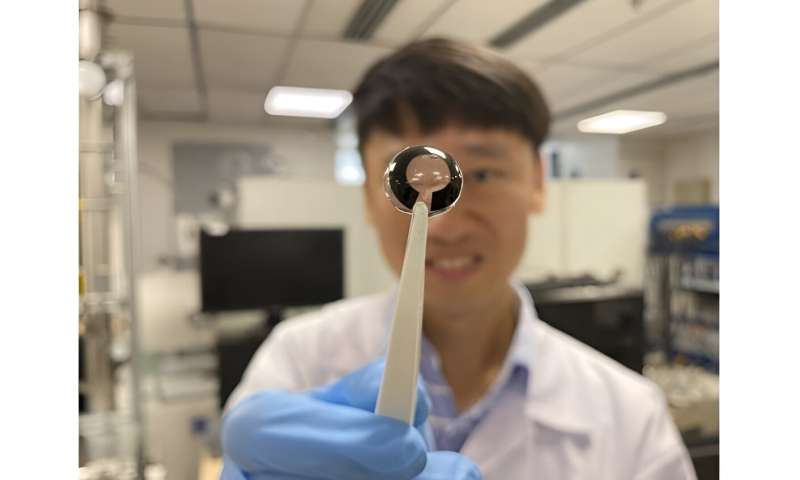Best of Last Week—Paper straws may be harmful too, a battery to power contact lenses, adversity changes the brain

It was a cautionary week for climate science as population ecologist William Rees, with the University of British Columbia's School of Community and Regional Planning, reminded denizens of Earth that the planet can only support so many people. He suggested that unless changes are made, humanity is headed for a massive population correction. Also, publisher Springer Nature, said it has withdrawn a study that presented misleading conclusions on climate change impacts after an investigation prompted by an AFP inquiry. They concluded that "…they no longer had confidence in the results and conclusions of the article." And a team at the University of Antwerp, announced that they had found evidence showing that paper drinking straws may be harmful to the environment and that they may not be any better than plastic straws.
In technology news, a team of engineers at the University of Illinois Urbana-Champaign developed a fluorinated diamond-like carbon coating steam condenser that could potentially save 460 million tons of carbon dioxide annually. And a team of electronic engineers at IBM demonstrated a 64-core, mixed-signal, in-memory computing chip based on phase-change memory devices. They suggest it would be ideal for supporting deep neural network computing. Also, an international team of computer scientists developed an extended photonic reinforcement learning scheme to help solve the "multi-armed bandit problem," in which a gambler can maximize winnings from a row of slot machines. And a team at NTU Singapore developed a flexible battery as thin as a human cornea that stores electricity in saline solution—a possible means for powering future smart contact lenses.
In other news, a team with members from several institutions in Argentina found that common supplements containing phytosterols may reduce natural hearing loss due to aging. Their use led to replacement of lost cholesterol in the inner ears of test mice. Also, a team at the University of Ottawa, working with colleagues from Sapienza University of Rome, demonstrated a technique for visualizing the wave function of two entangled photons. And finally, a team of neuroscientists at Radboud University found evidence showing that adversities can permanently change the function of the human brain.
© 2023 Science X Network